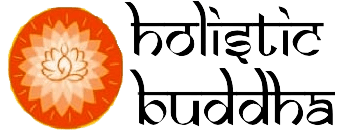

Acupuncture is a form of treatment that involves inserting very thin needles through a person’s skin at specific points on the body, to various depths.
Research suggestsTrusted Source that it can help relieve pain, and it is used for a wide range of other complaints.
However, according to the National Center for Complementary and Integrative Health (NCCIH), there is limited evidenceTrusted Source for its effectiveness in areas other than pain.
How acupuncture works scientifically remains unclear. Some people claim it works by balancing vital energy, while others believe it has a neurological effect.
Acupuncture remains controversial among Western medical doctors and scientists.
An acupuncurist will insert needles into a person’s body with the aim of balancing their energy.
This, it is claimed, can help boost wellbeing and may cure some illnesses.
Conditions it is used for include different kinds of pain, such as headaches, blood pressure problems, and whooping cough, among others.
How does it work?
Traditional Chinese medicine explains that health is the result of a harmonious balance of the complementary extremes of “yin” and “yang” of the life force known as “qi,” pronounced “chi.” Illness is said to be the consequence of an imbalance of the forces.
Qi is said to flow through meridians, or pathways, in the human body. These meridiens and energy flows are accessible through 350 acupuncture points in the body.
Inserting needles into these points with appropriate combinations is said to bring the energy flow back into proper balance.
There is no scientific proof that the meridians or acupuncture points exist, and it is hard to prove that they either do or do not, but numerous studies suggest that acupuncture works for some conditions.
Some experts have used neuroscience to explain acupuncture. Acupuncture points are seen as places where nerves, muscles, and connective tissue can be stimulated. The stimulation increases blood flow, while at the same time triggering the activity of the body’s natural painkillers.
It is difficult to set up investigations using proper scientific controls, because of the invasive nature of acupuncture. In a clinical study, a control group would have to undergo sham treatment, or a placebo, for results to be compared with those of genuine acupuncture.
Some studies have concluded that acupuncture offers similar benefits to a patient as a placebo, but others have indicated that there are some real benefits.
Uses
Research carried out in Germany has shown that acupuncture may help relieve tension headaches and migraines.
The NCCIH note that it has been proven to helpTrusted Source in cases of:
- low back pain
- neck pain
- osteoarthritis
- knee pain
- headache and migraine
They list additional disorders that may benefit from acupuncture, but which require further scientific confirmation.
In 2003, the World Health Organization (WHO) listed a number of conditions in which they say acupuncture has been proven effective.
These include:
- high and low blood pressure
- chemotherapy-induced nausea and vomiting
- some gastric conditions, including peptic ulcer
- painful periods
- dysentery
- allergic rhinitis
- facial pain
- morning sickness
- rheumatoid arthritis
- sprains
- tennis elbow
- sciatica
- dental pain
- reducing the risk of stroke
- inducing labor
Other conditions for which the WHO say that acupuncture may help but more evidence is needed include:
- fibromyalgia
- neuralgia
- post-operative convalescence
- substance, tobaccor and alcohol dependence
- spine pain
- stiff neck
- vascular dementia
- whooping cough, or pertussis
- Tourette syndrome
The WHO also suggest that it may help treat a number of infections, including some urinary tract infections and epidemic hemorrhagic fever.
They point out, however, that “only national health authorities can determine the diseases, symptoms, and conditions for which acupuncture treatment can be recommended.”
Benefits
Acupuncture can be beneficial in that:
- Performed correctly, it is safe.
- There are very few side effects.
- It can be effectively combined with other treatments.
- It can control some types of pain.
- It may help patients for whom pain medications are not suitable.






26 Comments
Awesome https://shorturl.fm/oYjg5
Very good partnership https://shorturl.fm/68Y8V
https://shorturl.fm/A5ni8
https://shorturl.fm/FIJkD
https://shorturl.fm/FIJkD
https://shorturl.fm/TbTre
https://shorturl.fm/a0B2m
https://shorturl.fm/TbTre
https://shorturl.fm/j3kEj
https://shorturl.fm/6539m
https://shorturl.fm/A5ni8
https://shorturl.fm/TbTre
https://shorturl.fm/a0B2m
https://shorturl.fm/6539m
https://shorturl.fm/XIZGD
https://shorturl.fm/IPXDm
https://shorturl.fm/YZRz9
https://shorturl.fm/nqe5E
https://shorturl.fm/0EtO1
https://shorturl.fm/0EtO1
https://shorturl.fm/I3T8M
https://shorturl.fm/JtG9d
https://shorturl.fm/nqe5E
https://shorturl.fm/PFOiP
https://shorturl.fm/hQjgP
https://shorturl.fm/I3T8M